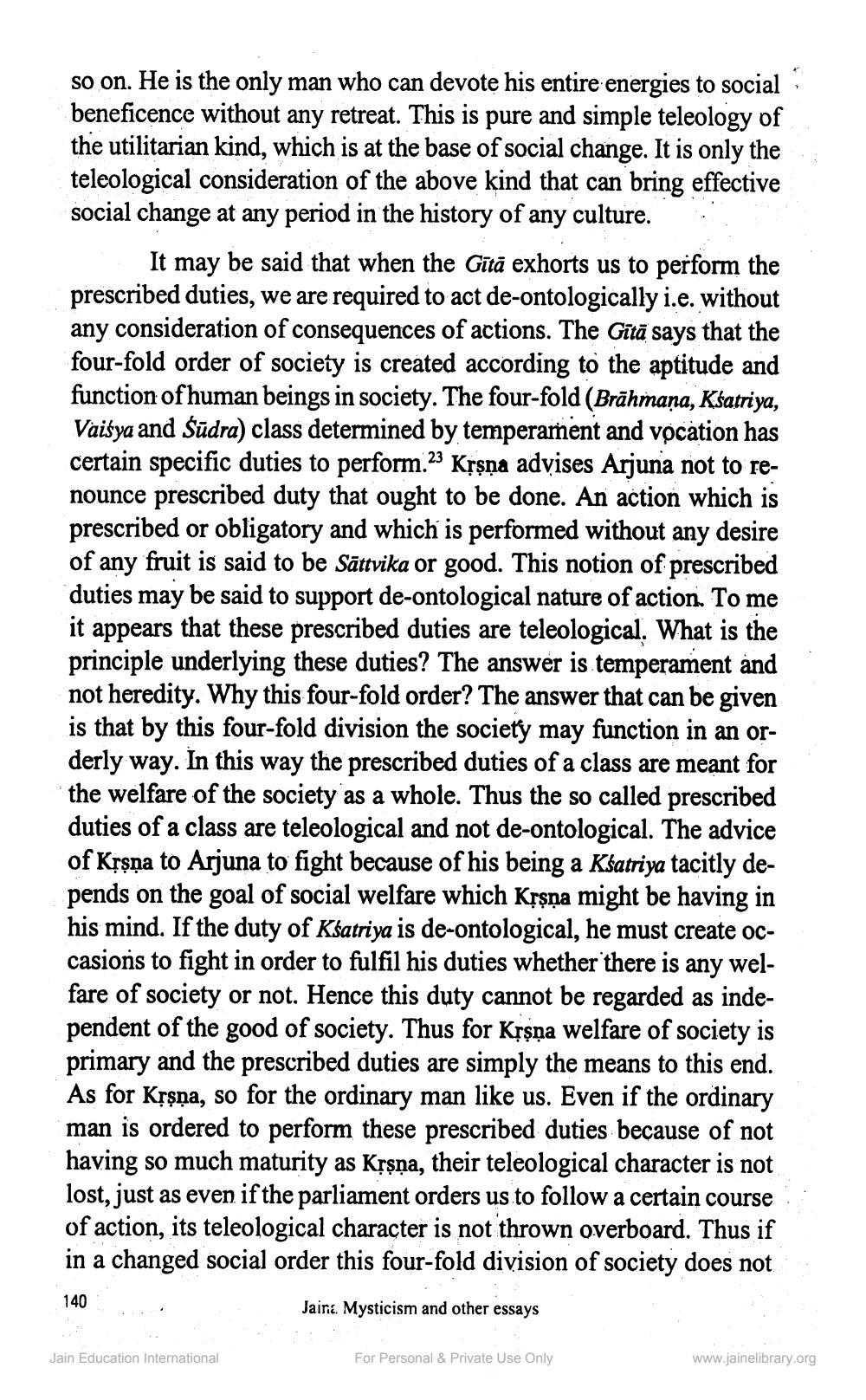________________
so on. He is the only man who can devote his entire energies to social beneficence without any retreat. This is pure and simple teleology of the utilitarian kind, which is at the base of social change. It is only the teleological consideration of the above kind that can bring effective social change at any period in the history of any culture.
It may be said that when the Gītā exhorts us to perform the prescribed duties, we are required to act de-ontologically i.e. without any consideration of consequences of actions. The Gītā says that the four-fold order of society is created according to the aptitude and function of human beings in society. The four-fold (Brāhmana, Ksatriya, Vaisya and Sūdra) class determined by temperament and vocation has certain specific duties to perform.23 Krşņa advises Arjuna not to renounce prescribed duty that ought to be done. An action which is prescribed or obligatory and which is performed without any desire of any fruit is said to be Sāttvika or good. This notion of prescribed duties may be said to support de-ontological nature of action. To me it appears that these prescribed duties are teleological. What is the principle underlying these duties? The answer is temperament and not heredity. Why this four-fold order? The answer that can be given is that by this four-fold division the society may function in an orderly way. In this way the prescribed duties of a class are meant for the welfare of the society as a whole. Thus the so called prescribed duties of a class are teleological and not de-ontological. The advice of Krşņa to Arjuna to fight because of his being a Kšatriya tacitly depends on the goal of social welfare which Krşņa might be having in his mind. If the duty of Ksatriya is de-ontological, he must create occasions to fight in order to fulfil his duties whether there is any welfare of society or not. Hence this duty cannot be regarded as independent of the good of society. Thus for Krşņa welfare of society is primary and the prescribed duties are simply the means to this end. As for Krşņa, so for the ordinary man like us. Even if the ordinary man is ordered to perform these prescribed duties because of not having so much maturity as Krşņa, their teleological character is not lost, just as even if the parliament orders us to follow a certain course of action, its teleological character is not thrown overboard. Thus if in a changed social order this four-fold division of society does not
140
Jaina. Mysticism and other essays
Jain Education International
For Personal & Private Use Only
www.jainelibrary.org




